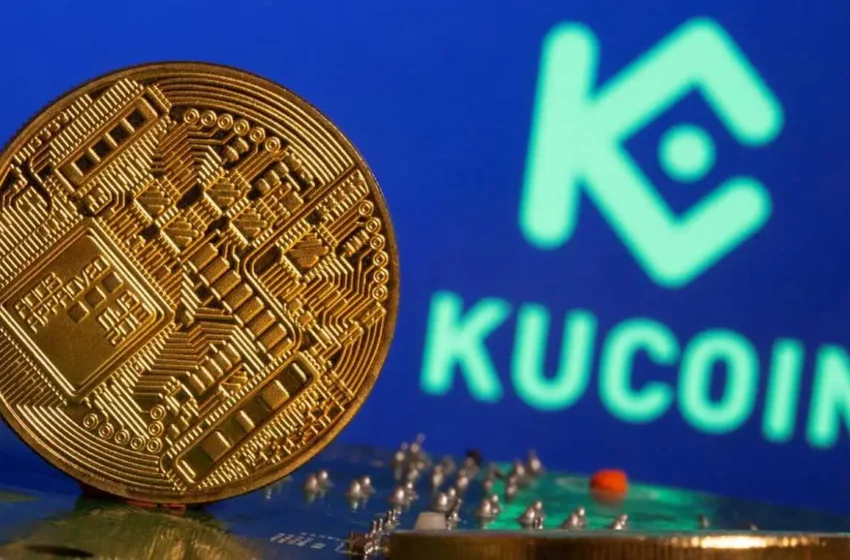KuCoin Agrees to $297M Settlement Over Compliance Failures
(Originally posted on : Crypto News – iGaming.org )
KuCoin, one of the world’s largest cryptocurrency exchanges, has reached a settlement with the U.S. government, agreeing to pay $297 million in penalties. The exchange’s parent company, Peken Global Limited, pleaded guilty to operating an unlicensed money-transmitting business. The U.S. Attorney’s Office for the Southern District of New York announced the charges, citing violations of anti-money laundering (AML) regulations.
Compliance Failures and Legal Consequences
According to U.S. Attorney Danielle R. Sassoon, KuCoin failed to implement an effective AML program and did not report suspicious transactions. These shortcomings allegedly allowed illicit funds to move through the platform.
“As a result, KuCoin was used to facilitate billions of dollars’ worth of suspicious transactions and to transmit potentially criminal proceeds, including proceeds from darknet markets and malware, ransomware, and fraud schemes,” Sassoon stated. “Today’s guilty plea and penalties show the cost of refusing to follow these laws and allowing unlawful activity to continue.”
Under the settlement, KuCoin will forfeit $184.5 million and pay an additional $112.9 million in fines. The exchange has also agreed to exit the U.S. market for at least two years.
In addition to corporate penalties, two of KuCoin’s founders, Chun Gan and Ke Tang, have agreed to forfeit approximately $2.7 million each. Both individuals will no longer be involved in the company’s management or operations.
New players only. Exclusive Welcome Bonus of 350% + 150 Free Spins
KuCoin ranks as the 17th-largest cryptocurrency exchange globally by monthly visits, according to CoinGecko. Despite its significant market presence, the exchange now faces increased regulatory scrutiny, particularly in jurisdictions with strict compliance requirements.
With KuCoin exiting the U.S., the crypto industry continues to face growing enforcement actions from regulators. This case highlights the increasing pressure on exchanges to adhere to AML laws and ensure compliance with financial regulations.







 Bitcoin
Bitcoin  Ethereum
Ethereum  Tether
Tether  XRP
XRP  Solana
Solana  USDC
USDC  TRON
TRON  Dogecoin
Dogecoin  Lido Staked Ether
Lido Staked Ether  Cardano
Cardano  Wrapped Bitcoin
Wrapped Bitcoin  Hyperliquid
Hyperliquid  Wrapped stETH
Wrapped stETH  Sui
Sui  Bitcoin Cash
Bitcoin Cash  Chainlink
Chainlink  LEO Token
LEO Token  Stellar
Stellar  Avalanche
Avalanche  USDS
USDS  Shiba Inu
Shiba Inu  Wrapped eETH
Wrapped eETH  Toncoin
Toncoin  Hedera
Hedera  WETH
WETH  Litecoin
Litecoin  WhiteBIT Coin
WhiteBIT Coin  Binance Bridged USDT (BNB Smart Chain)
Binance Bridged USDT (BNB Smart Chain)  Monero
Monero  Coinbase Wrapped BTC
Coinbase Wrapped BTC  Ethena USDe
Ethena USDe  Polkadot
Polkadot  Bitget Token
Bitget Token  Uniswap
Uniswap  Aave
Aave  Pepe
Pepe  Dai
Dai  Pi Network
Pi Network  Ethena Staked USDe
Ethena Staked USDe  OKB
OKB  Bittensor
Bittensor  Aptos
Aptos  BlackRock USD Institutional Digital Liquidity Fund
BlackRock USD Institutional Digital Liquidity Fund  Jito Staked SOL
Jito Staked SOL  NEAR Protocol
NEAR Protocol  Internet Computer
Internet Computer  Cronos
Cronos  Ethereum Classic
Ethereum Classic  Ondo
Ondo  sUSDS
sUSDS  USD1
USD1  Mantle
Mantle  Cosmos Hub
Cosmos Hub  Gate
Gate  VeChain
VeChain  Bonk
Bonk  Artificial Superintelligence Alliance
Artificial Superintelligence Alliance  Official Trump
Official Trump  Sky
Sky  POL (ex-MATIC)
POL (ex-MATIC)  Ethena
Ethena  Render
Render  Lombard Staked BTC
Lombard Staked BTC  Arbitrum
Arbitrum  Filecoin
Filecoin  Binance-Peg WETH
Binance-Peg WETH  Jupiter Perpetuals Liquidity Provider Token
Jupiter Perpetuals Liquidity Provider Token  Algorand
Algorand  Worldcoin
Worldcoin  USDtb
USDtb  Sei
Sei  Binance Staked SOL
Binance Staked SOL  KuCoin
KuCoin  USDT0
USDT0  Jupiter
Jupiter  SPX6900
SPX6900  NEXO
NEXO  Rocket Pool ETH
Rocket Pool ETH  Fartcoin
Fartcoin  Celestia
Celestia  Polygon Bridged USDT (Polygon)
Polygon Bridged USDT (Polygon)  Injective
Injective  Virtuals Protocol
Virtuals Protocol  Binance Bridged USDC (BNB Smart Chain)
Binance Bridged USDC (BNB Smart Chain)  Stacks
Stacks  Sonic
Sonic  Mantle Staked Ether
Mantle Staked Ether  StakeWise Staked ETH
StakeWise Staked ETH  Optimism
Optimism  SyrupUSDC
SyrupUSDC  Pudgy Penguins
Pudgy Penguins  PAX Gold
PAX Gold  Arbitrum Bridged WBTC (Arbitrum One)
Arbitrum Bridged WBTC (Arbitrum One)